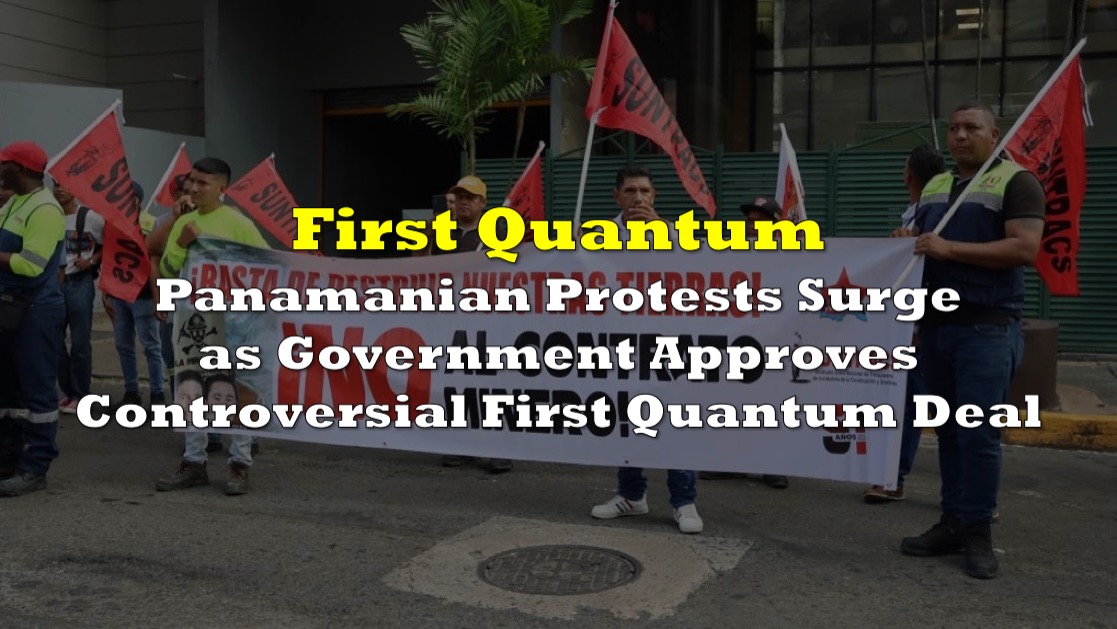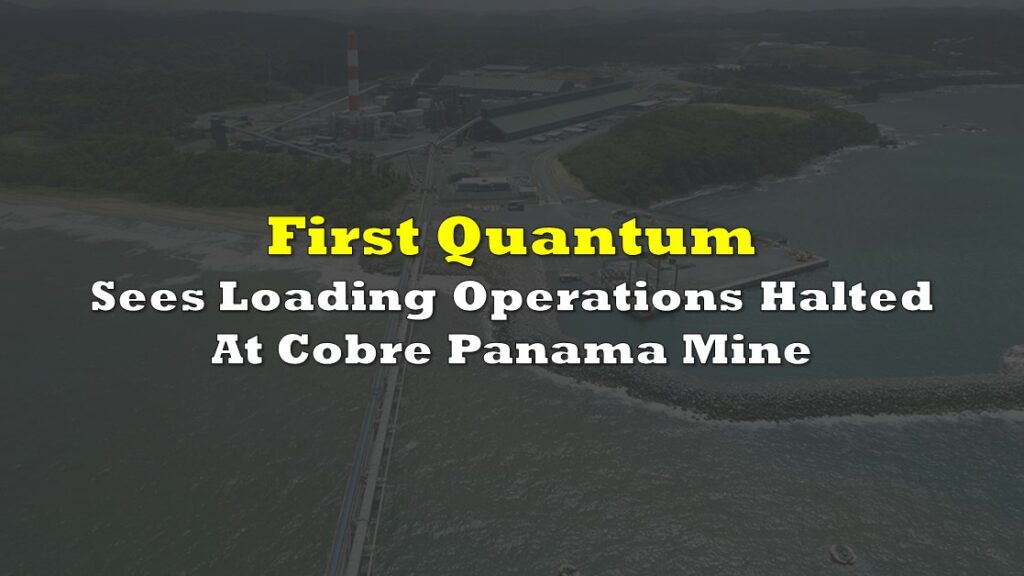Protesters took to the streets of Panama on Monday, voicing their demands for the government to revoke a controversial contract that allows copper mining to continue in a biodiverse region. Led by teaching and construction unions in collaboration with environmentalists, the demonstrators contend that ongoing development poses a severe threat to the lush forested landscapes and vital groundwater sources located just 120 kilometers to the west of Panama’s capital city in the state of Colon.
Throughout Panama City, demonstrators conducted peaceful protests, distributing informative flyers to raise awareness about their cause. However, on the outskirts of the capital, in some areas, the police encountered protesters with the use of tear gas. In anticipation of these significant protests, the largest since the cost of living crisis last July, both the Department of Education and the University of Panama made the decision to cancel classes.
In response, the government took to social media to emphasize the “enormous contribution” made by the mine, which stands as Panama’s largest private investment, bolstering the nation’s economy.
In March, the Panamanian legislature reached an agreement with the mining company First Quantum (TSX: FM) . This agreement permitted its local subsidiary, Minera Panama, to extend its operations at a massive open-pit copper mine in central Panama for a minimum of 20 more years. This mine had been temporarily shuttered the previous year when negotiations between the government and First Quantum broke down over payment terms desired by the government.
On October 20, the Panamanian National Assembly successfully passed Bill 1100 in its third plenary session, with a strong majority of 47 votes in favor out of a total of 55 recorded votes. On the very same day, President Laurentino Cortizo officially endorsed Bill 1100, transforming it into Law 406, and it was subsequently published in the Official Gazette. This pivotal moment with the enactment of Law 406 signifies the conclusive stage in the comprehensive revision of the legal structure governing the Cobre Panamá mine.
“We are pleased that the revised contract establishes the basis for a renewed long-term relationship between Panamá and First Quantum. This will provide for both continued investment in the mine and for its important contribution to Panamá and its people. We are committed to the obligations of the contract and to responsible stewardship of the Cobre Panamá mine, including a continued positive impact on our workforce, the surrounding communities and the environment,” said Tristan Pascall, Chief Executive Officer.
Protests first flared up after Cortizo gave his approval to the contract last Friday, following its endorsement by the congress. The move was viewed as secretive and swift by critics, including Fernando Abrego, leader of Panama’s Association of Teachers union, who remarked, “The government resolved this confrontation by quickly and expeditiously approving a contract they know is rejected by the people.”
The teachers were joined in their protests by construction workers, one of the most influential labor groups in the country. Union leader Saúl Méndez emphasized the gravity of the situation, stating, “The people are in the streets in defense of sovereignty in the face of a contract that cedes self-determination by devastating the environment to steal resources.”
The economic gains from a single mining site, which already contributes 3% to the nation’s gross domestic product, pose a formidable counterargument to these concerns. Minera Panama insists that the mine will provide employment for thousands of Panamanians and account for 80% of the nation’s total exports.
The new contract, initially bogged down by labor disputes, guarantees Panama an annual sum of at least $375 million from Minera Panama, which is more than ten times the amount of the previous agreement. This represents one of the most significant national mining contracts in a region where other countries, such as Costa Rica, maintain stricter regulation of the sector, and El Salvador has completely banned metal mining since 2017.
Fernando Abrego made it clear that concession was not an option for the teachers, vowing that the teachers’ union would convene to plan their next course of action. “We will persist in our presence on the streets,” he affirmed.
First Quantum last traded at $29.68 on the TSX.
Information for this briefing was found via Vancouver City News and the sources mentioned. The author has no securities or affiliations related to this organization. Not a recommendation to buy or sell. Always do additional research and consult a professional before purchasing a security. The author holds no licenses.









